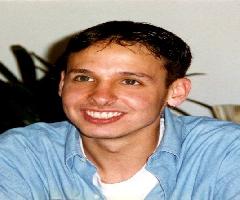For the most part, according to Alison Carroll of Putnam Family and Community Services, people don’t want to see mental illness unless they are directly confronted by the disease. It therefore becomes easier to relegate the problem out of sight – until the mind it begins to come out of is yours. And in Putnam County, the actual numbers might be surprising, according to the Carmel based non-profit.
From severe depression, drug and alcohol rehabilitation and seasonal depression to stress related issues of parenting, relationships, job loss and divorce, says Ms. Carroll, “We see about 10,000 people through the
Taking a much smaller slice as Director of Psychiatric Rehabilitation Services, the Mahopac resident treats the type of illnesses that tend to be serious enough to interfere with the everyday functions necessary to hold a job, go to school or maintain a relationship. But Ms. Carroll is quick to point out that schizophrenia, bipolar disorder and borderline personality refer to illnesses and not people. “We talk about people with schizophrenia,” she says, because applying labels such as these, can imply to both patient and professional that recovery is not part of the process, she adds.
In the past, day treatment programs had a maintenance model. They would go five days a week and were told, you’ll probably never live independently, never have a family or hold a job, she says.
Furthermore, a team no longer sits in a room and sets aside goals for each person. How do you succeed when clients don’t own their own goals, she asks, and getting married or finding a career has displaced the old maintenance bar of simply attending group regularly, she adds.
PFCS also makes the treatment plan a partnership between client and staff. We pick the groups with them that addresses those problems that interfere with reaching the goals they want to attain, says Ms. Carroll, who has a Masters in Social Work from NYU.
In addition, clients benefit as a result of a staff that isn’t burdened by bureaucracies of defeat. Sometimes people tend to come here who’ve been beaten down by the system because recovery can fall off the agenda in the everyday struggle, she says.
Parents get relief in this regard also. Believing in the vital role family support can play in recovery, sometimes parents come in pulling away from their children and the whole process. Possibly being blamed for their children’s illness, she says, “They’ve already been through the ringer and they’ve been mistreated by the system.” In response, PFCS tries to sure up family relationships and get family members the support they need to continue.
In terms of medication, refusal does not mean removal. The client is the expert on what works and what doesn’t, but the relationship between doctor and patient at PFCS has more depth than that.
“Our goal is that people have enough faith in us that no matter what you tell us, we’re going to be there - even if we don’t agree,” she says.
Over the long haul, PFCS is constantly accessing whether their support leans towards a dependency that is difficult to undo. If people are capable in certain areas, we pull back, she says. “If they aren’t, we’re not going to do it for them but with them so they can eventually do it on their own.”
And what does recovery look like? “I can’t tell you,” she says, but achieving your dreams or getting close to them works for us all – no matter what the state of mind, she concludes.
For more info www.pfcsinc.org


